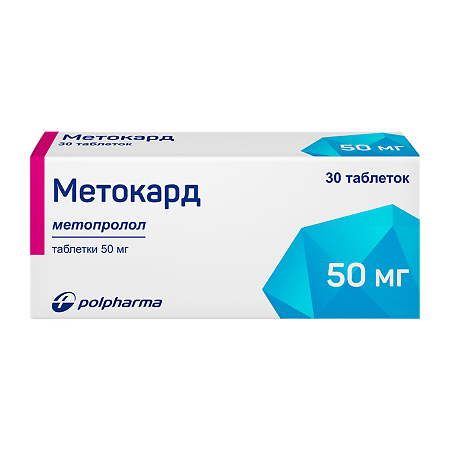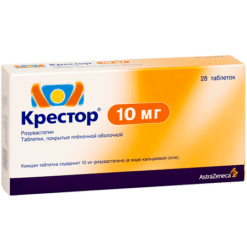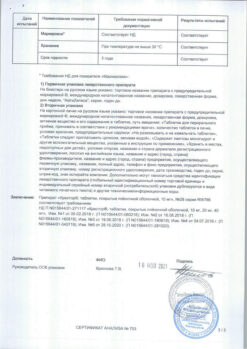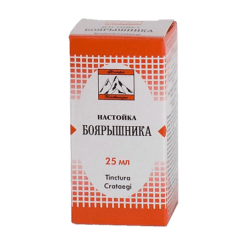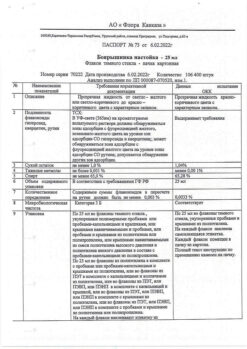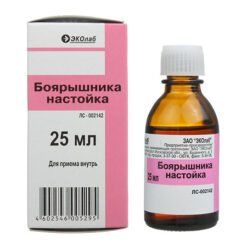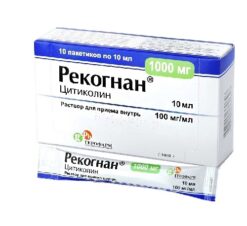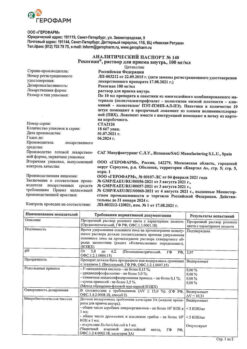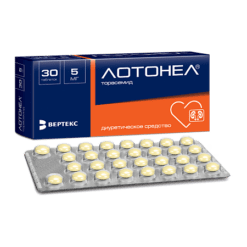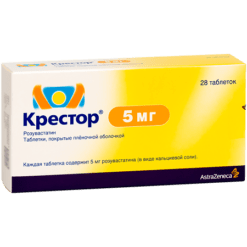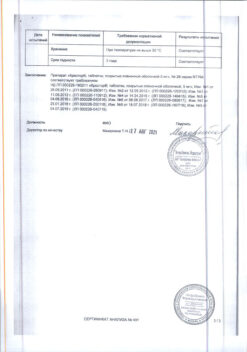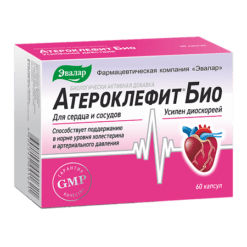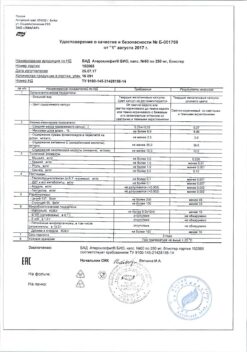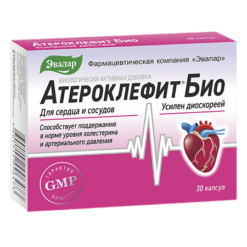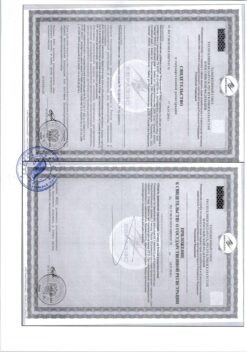No products in the cart.
Metocard, tablets 50 mg, 30 pcs.
€2.56 €2.33
Description
Methocard – antiarrhythmic, hypotensive, antianginal.
Selectively blocks beta1-adrenoreceptors, inhibits the action of endogenous catecholamines, inhibits the activity of the renin-angiotensin system.
Decreases minute volume and heart function. Inhibits central sympathetic impulses. It has no membrane stabilizing effect and has no intrinsic sympathomimetic activity.
Pharmacokinetics
It is rapidly and almost completely absorbed from the gastrointestinal tract. Cmax and Tmax with Metocard 100 mg or Metocard retard administration are 99.4±33 ng/mg and 1.58±0.55 h, or 152.9±72.8 ng/mL and 2.75±0.87 h. Protein binding is 11-12%. Metabolized in the liver, T1/2 – 3.5 h. It is excreted mainly by the kidneys (95%). Passes through the placenta.
Indications
Indications
Arterial hypertension, coronary artery disease, heart failure
Pharmacological effect
Pharmacological effect
Metocard – antiarrhythmic, hypotensive, antianginal.
Selectively blocks beta1-adrenergic receptors, interferes with the action of endogenous catecholamines, and inhibits the activity of the renin-angiotensin system.
Reduces cardiac output and work. Inhibits central sympathetic impulses. It does not have a membrane-stabilizing effect and does not have internal sympathomimetic activity.
Pharmacokinetics
Quickly and almost completely absorbed from the gastrointestinal tract. Cmax and Tmax when taking Metocard 100 mg or Metocard retard are 99.4±33 ng/mg and 1.58±0.55 hours, or 152.9±72.8 ng/ml and 2.75±0.87 hours. Protein binding is 11–12%. Metabolized in the liver, T1/2 – 3.5 hours. Excreted mainly by the kidneys (95%). Passes through the placenta.
Special instructions
Special instructions
Monitoring of patients taking Metocard includes regular monitoring of heart rate and blood pressure, blood glucose levels in patients with diabetes. If necessary, the dose of insulin or oral hypoglycemic drugs for patients with diabetes mellitus should be selected individually.
The patient should be taught how to calculate heart rate and instructed about the need for medical consultation if the heart rate is less than 50 beats/min. When taking a dose above 200 mg/day. cardioselectivity decreases.
In case of heart failure, treatment with metoprolol begins only after reaching the compensation stage.
It is possible that the severity of hypersensitivity reactions may increase (against the background of a burdened allergic history) and the lack of effect from the administration of usual doses of epinephrine (adrenaline).
While taking Metocard, symptoms of peripheral arterial circulation disorders may intensify.
The drug is discontinued gradually, reducing the dose over 10 days.
If treatment is abruptly stopped, withdrawal syndrome may occur (increased angina attacks, increased blood pressure). When discontinuing the drug, special attention should be paid to patients with angina pectoris.
For exertional angina, the selected dose of the drug should ensure the heart rate at rest within the range of 55-60 beats/min, and during exercise – no more than 110 beats/min.
Patients who use contact lenses should take into account that during treatment with beta-blockers, a decrease in the production of tear fluid may occur.
Metoprolol may mask some clinical manifestations of hyperthyroidism (eg, tachycardia). Abrupt withdrawal in patients with thyrotoxicosis is contraindicated because it can increase symptoms.
In diabetes mellitus, Metocard can mask tachycardia caused by hypoglycemia. Unlike non-selective beta-blockers, it practically does not enhance insulin-induced hypoglycemia and does not delay the restoration of blood glucose concentrations to normal levels.
If it is necessary to prescribe to patients with bronchial asthma, stimulants are used as concomitant therapy? 2-adrenergic receptors; for pheochromocytoma – alpha-blockers.
If surgical intervention is necessary, it is necessary to warn the anesthesiologist about the therapy being performed (choosing a general anesthesia agent with minimal negative inotropic effect); discontinuation of the drug is not recommended.
Drugs that reduce catecholamine reserves (for example, reserpine) may enhance the effect of beta-blockers, so patients taking such combinations of drugs should be under constant medical supervision to detect an excessive decrease in blood pressure and bradycardia.
In elderly patients, regular monitoring of liver function is recommended. Correction of the dosage regimen is required only if an elderly patient develops increasing bradycardia (less than 50 beats/min), a pronounced decrease in blood pressure (systolic blood pressure below 100 mm Hg), AV blockade, bronchospasm, ventricular arrhythmias, severe liver dysfunction, and sometimes it is necessary to stop treatment.
In patients with severe renal impairment, monitoring of renal function is recommended.
Special monitoring should be carried out for the condition of patients with depressive disorders taking metoprolol; in case of depression caused by taking beta-blockers, it is recommended to discontinue therapy.
The drug should be used with caution in cases of severe liver dysfunction.
The drug should be used with caution in cases of severe renal dysfunction.
The safety and effectiveness of the drug in children and adolescents under 18 years of age has not been established.
At the beginning of treatment with metoprolol, patients may experience dizziness and fatigue. In this case, they should refrain from driving vehicles and engaging in potentially hazardous activities that require increased concentration and speed of psychomotor reactions. In the future, this issue should be resolved after assessing the patient’s individual response to the therapy.
Active ingredient
Active ingredient
Metoprolol
Composition
Composition
1 tablet contains:
metoprolol tartrate 50 mg.
Excipients:
lactose,
povidone,
talc,
magnesium stearate,
microcrystalline cellulose,
rice starch.
Contraindications
Contraindications
pulse less than 50 beats per minute
severe heart failure
bronchial asthma
severe impairment of liver and/or kidney function
hypersensitivity to the drug Metocard.
Side Effects
Side Effects
From the nervous system and sensory organs: headache, dizziness, nightmares, insomnia, depression, short-term amnesia, disorientation, paresthesia; blurred vision, dry eyes, tinnitus.
From the cardiovascular system and blood (hematopoiesis, hemostasis): bradycardia, palpitations, hypotension, impaired AV conduction, circulatory failure, thrombocytopenia, agranulocytosis.
From the respiratory system: bronchospasm, suffocation.
From the gastrointestinal tract: dry mouth, heartburn, flatulence, stomach pain, vomiting, constipation/diarrhea.
Allergic reactions: itching, rash, psoriatic skin changes.
Other: Peyronie’s disease, myalgia, alopecia.
Interaction
Interaction
Concomitant use with MAO inhibitors is not recommended due to a significant increase in the hypotensive effect. The break between taking MAO inhibitors and metoprodol should be at least 14 days.
Simultaneous intravenous administration of verapamil can provoke cardiac arrest. The simultaneous administration of nifedipine leads to a significant decrease in blood pressure.
When used simultaneously with Metocard, agents for inhalation general anesthesia (hydrocarbon derivatives) increase the risk of suppression of myocardial function and the development of arterial hypotension; beta-agonists, theophylline, cocaine, estrogens (sodium retention), indomethacin and other NSAIDs (sodium retention and blocking renal prostaglandin synthesis) weaken the hypotensive effect.
There is an increased inhibitory effect on the central nervous system when used simultaneously with ethanol; summation of the cardiodepressive effect – with agents for general anesthesia; increased risk of peripheral circulatory disorders – with ergot alkaloids.
When taken together with oral hypoglycemic agents, their effect may be reduced; with insulin – increasing the risk of developing hypoglycemia, increasing its severity and duration, masking some symptoms of hypoglycemia (tachycardia, sweating, increased blood pressure).
When combined with antihypertensive drugs, diuretics, nitroglycerin or slow calcium channel blockers, a sharp decrease in blood pressure may develop (special caution is required when combined with prazosin).
When Metocard is used with verapamil, diltiazem, antiarrhythmic drugs (amiodarone), reserpine, alpha-methyldopa, clonidine, guanfacine, general anesthesia agents and cardiac glycosides, an increase in the severity of the decrease in heart rate and inhibition of AV conduction is observed.
If metoprolol and clonidine are taken simultaneously, then when metoprolol is discontinued, clonidine is discontinued after a few days (due to the risk of withdrawal syndrome).
Inducers of microsomal liver enzymes (rifampicin, barbiturates) lead to increased metabolism of metoprolol, a decrease in the concentration of metoprolol in the blood plasma and a decrease in the effect. Inhibitors of microsomal liver enzymes (cimetidine, oral contraceptives, phenothiazines) – increase the concentration of metoprolol in the blood plasma.
Allergens used for immunotherapy or allergen extracts for skin testing when used in combination with metoprolol increase the risk of systemic allergic reactions or anaphylaxis; iodine-containing radiopaque agents for intravenous administration increase the risk of developing anaphylactic reactions.
Metoprolol, when used simultaneously, reduces the clearance of xanthine (except for diphylline), especially with the initially increased clearance of theophylline under the influence of smoking; reduces the clearance of lidocaine, increases the concentration of lidocaine in the blood plasma.
When used simultaneously, Metocard enhances and prolongs the effect of antidepolarizing muscle relaxants and prolongs the anticoagulant effect of coumarins.
When Metocard is used together with ethanol, the risk of a pronounced decrease in blood pressure increases.
Tri- and tetracyclic antidepressants, antipsychotics (neuroleptics), sedatives and hypnotics, when used together with metoprolol, increase central nervous system depression.
Overdose
Overdose
Symptoms: severe severe sinus bradycardia, dizziness, nausea, vomiting, cyanosis, marked decrease in blood pressure, arrhythmia, ventricular ecstasystole, bronchospasm, fainting, in case of acute overdose – cardiogenic shock, loss of consciousness, coma, AV block (up to the development of complete transverse block and cardiac arrest), cardialgia. The first signs of overdose appear 20 minutes-2 hours after taking the drug.
Treatment: gastric lavage and administration of adsorbents, symptomatic therapy: with a pronounced decrease in blood pressure, the patient should be in the Trendelenburg position; in case of excessive decrease in blood pressure, bradycardia and heart failure – intravenous administration (with an interval of 2-5 minutes) of beta-agonists until the desired effect is achieved or intravenous administration of 0.5-2 mg of atropine sulfate. If there is no positive effect, administer dopamine, dobutamine or norepinephrine (norepinephrine). As subsequent measures, it is possible to prescribe 1-10 mg of glucagon and install a transvenous intracardial pacemaker. For bronchospasm, a2-adrenergic receptor stimulators should be administered intravenously.
Metoprolol is poorly excreted by hemodialysis.
Storage conditions
Storage conditions
The drug should be stored in a dry place, protected from light, at a temperature not exceeding 25°C.
Shelf life
Shelf life
3 years.
Manufacturer
Manufacturer
Polpharma JSC, Poland
Additional information
| Shelf life | 3 years. |
|---|---|
| Conditions of storage | The drug should be stored in a dry place protected from light at a temperature not exceeding 25°C. |
| Manufacturer | Polpharma S.A., Poland |
| Medication form | pills |
| Brand | Polpharma S.A. |
Related products
Buy Metocard, tablets 50 mg, 30 pcs. with delivery to USA, UK, Europe and over 120 other countries.

